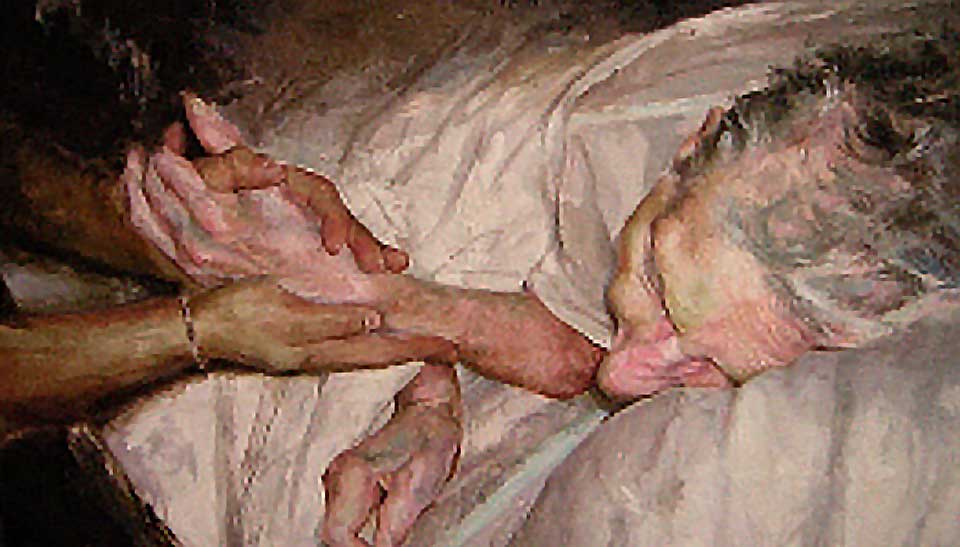
We have learned that while there is endless suffering, there is also endless compassion to respond to that suffering.
Frank Ostaseski
In the times we live where the fear of death becomes real, we are faced with the uncertainty of finding ourselves ill and losing loved ones suddenly. We face the sadness of receiving an urn of ashes and of not having practiced a funeral, a ceremony, a farewell; there remains the impotence of not having done anything and of not understanding what we have been through.
We know that most religions have developed the certainty of life after death, it is a consolation that allows us to accept that human existence as all matter is transformed. Other philosophies credit the presence of the deceased as an energy present in our environment several days after his death. Catholics speak of the resurrection of the soul, Buddhists speak of its close presence while its reincarnation occurs, and Islam speaks of divine justice for all according to their actions in life.
Since ancient times, ancient peoples worshiped death, because it is a vital and impermanent cycle, that death would be life again, as night turns into day. Two centuries ago seances were held throughout the Western world, serious and educated people claimed to have communicated with their deceased. If all the wise men of humanity have agreed on this, it seems that something can always be done for our loved ones who passed away. Even if we are practical-minded and we know that there is no scientific evidence of life after death, only grief remains, then we must bear in mind that it is important to manage our pain, as an exercise in emotional health.
The Dalai Lama has said that to have a compassionate heart, the first step is to cultivate a feeling of empathy or closeness to others, as well as to recognize the seriousness of your misery. It is necessary to reflect on the virtues that exist in joy for the well-being of other people. True compassion is the understanding of the deep pain that others suffer and that understanding can bring us the tranquility and happiness that we seek in life and achieve this purpose we must work continuously. Self-compassion, according to Buddhism, should be the first practice and no one deserves more kindness, compassion, and love than ourselves; if we open our hearts it will be easier to give love to others.
Jesus said: you will love your neighbor as yourself (Matthew 22:40). It is a principle of total empathy that is legitimized as the highest of actions. Pray, reflect and meditate from our diverse beliefs, place us in a stable point in the midst of chaos. When we wait for the storm to pass to come out again, we better understand what happened. There is also great anger, due to the frustration and immense pain caused by the death of a loved one.
These days, testimonies have been heard from people who accuse citizens, hospitals, and governments of the sudden death of a family member or friend for not doing enough to save their life. No one will be able to do anything about it or compensate for personal damage, it is something that we must repair ourselves. It is not easy, but compassion towards us, towards our deceased, loved one and towards those who put themselves at risk trying to save lives in the middle of an unprecedented situation for which no one was prepared, can be a tool on the path of healing for that deep pain.
Compassionate and self-compassionate acts are convenient for the grieving process in general, but particularly in cases where you did not have the opportunity to say goodbye. Various actions can be carried out: a small, homemade funeral with the urn of ashes, a photograph, and objects of the loved one. Express the feelings that could not be said in life, especially those of love for that person.
The medical staff and nurses who have cared for the dying say that these patients are overwhelmed by a host of concerns to be resolved before dying and are assisted so that they can be freed from all their sorrows and can die in peace. This is something that we can say verbally or through a letter to our loved one even after death: “You have already fulfilled, you have already loved your fellow men, you have no debts here.” You can make altars dedicated to these people with food, flower offerings, listen to the favorite music of the deceased, light candles that illuminate the path of bewilderment.
Some people choose to think about the joy and gratitude of having been able to share the earthly experience with the loved one who left, instead of focusing on the pain of the loss. Others have talked about doing charity work or volunteering for that loved one. May all tragedy turn into acts of love and dedication. Let these acts last in time so as not to forget those who have passed away, but no one has said that it is easy.
At Del Pueblo Funeral Home, we believe that the most important thing is to love the life we now have, share with loved ones and practice what makes us happy. Do what really matters to us and dedicate a work of service to others, so when the moment of death comes we can thank and bless the life we have had. That requires a true release of resentments to know true compassion. We remind you that we make the most difficult moments easy.
